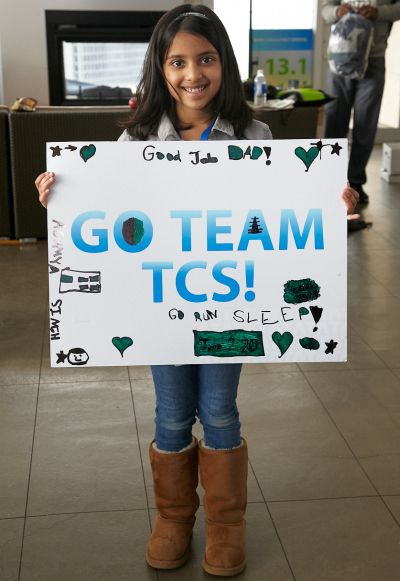The company says it's not keen on an acquisition-led strategy At a time when competitors such as Infosys, Wipro and Cognizant have been aggressive with inorganic growth (mergers and acquisitions), India’s largest information technology services provider, Tata Consultancy Services, prefers to grow organically.
At a time when competitors such as Infosys, Wipro and Cognizant have been aggressive with inorganic growth (mergers and acquisitions), India’s largest information technology services provider, Tata Consultancy Services, prefers to grow organically.
Rajesh Gopinathan, chief financial officer at TCS, had told the Business Standard in an earlier interview: “We are always open to large investments and we have the capacity to do it.
We believe the opportunity for organic growth is so large that an acquisition-led growth strategy is not something that we are very keen on.”
According to Gopinathan, TCS is more conservative in terms of evaluating investment opportunities.
“Investments need to be evaluated for multiple things. One of the things they can deliver to you is strategic capability -- new service line, new products, or new market access. It can be used as a mechanism for growth as well.
We have always participated in the first two, but stayed away from the last one.”
In the past, TCS moved into new markets such as France and Japan thanks to acquisitions, Gopinathan said. “We have done acquisitions to move into new service lines when we bought out eServe.
"We have done acquisition to move into a product area like we did for banking product.”
TCS’ two strategic acquisitions in the recent past have been a tad different from that of Infosys, Wipro and Cognizant, which have acquired for technology capability.
In 2013, TCS acquired France-based consulting services company Alti SA, which allowed it to get ahead of competition in France.
According to a recent report by PhillipCapital, France represents one of the largest potential with IT spends opportunity of $9.2 billion.
“TCS has a much stronger presence in the European Union region than most of its peers.
"Twenty-nine per cent of its revenues come from here and they have posted a compounded quarterly growth rate of 4.2 per cent over the past seven quarters.
"TCS has surmounted the language barrier issue, which other companies still face, and has a strong presence in countries such as France and Germany.
"Its acquisition of Alti to gain a foothold in the region shows its earnestness in capitalising the EU opportunity,” said Vibhor Singhal and Deepan Kapadia of PhillipCapital in their report.
In 2014, TCS merged its Japanese business with Mitsubishi’s IT Frontier Corp (ITF).
TCS had revenues of about $104 million accruing from Japan in FY14 with high single digit margins.
On the other hand, ITF had revenues of $500 million with margins of low single-digits. Other than a total revenue of $600 million, this merger gave TCS access to the world’s second-largest IT market. Very few companies have managed to break into the Japan market.
According to analysts, TCS has been an early adopter of the social, mobile, analytics and cloud, or SMAC, platform play and it has chosen to do it organically.
Sharing the revenue details of the cloud platforms the company had developed in-house, TCS’ managing director and CEO N Chandrasekaran said during an analyst call: “After operating in a near-stealth mode for the last couple of years or more, I wanted to share with you the progress made by TCS’ cloud platforms, consisting of our assessment engine, our financial inclusion platform and five horizontal platforms covering human resources, financial accounting, accounts payable, procurement and analytics.
"These seven platforms together have made significant progress and crossed an annual run-rate of $100 million. These platforms generated $125 million of revenue in FY15 at a growth rate of 55 per cent year-on-year.”
Photograph: Kind courtesy, TCS







 © 2025
© 2025